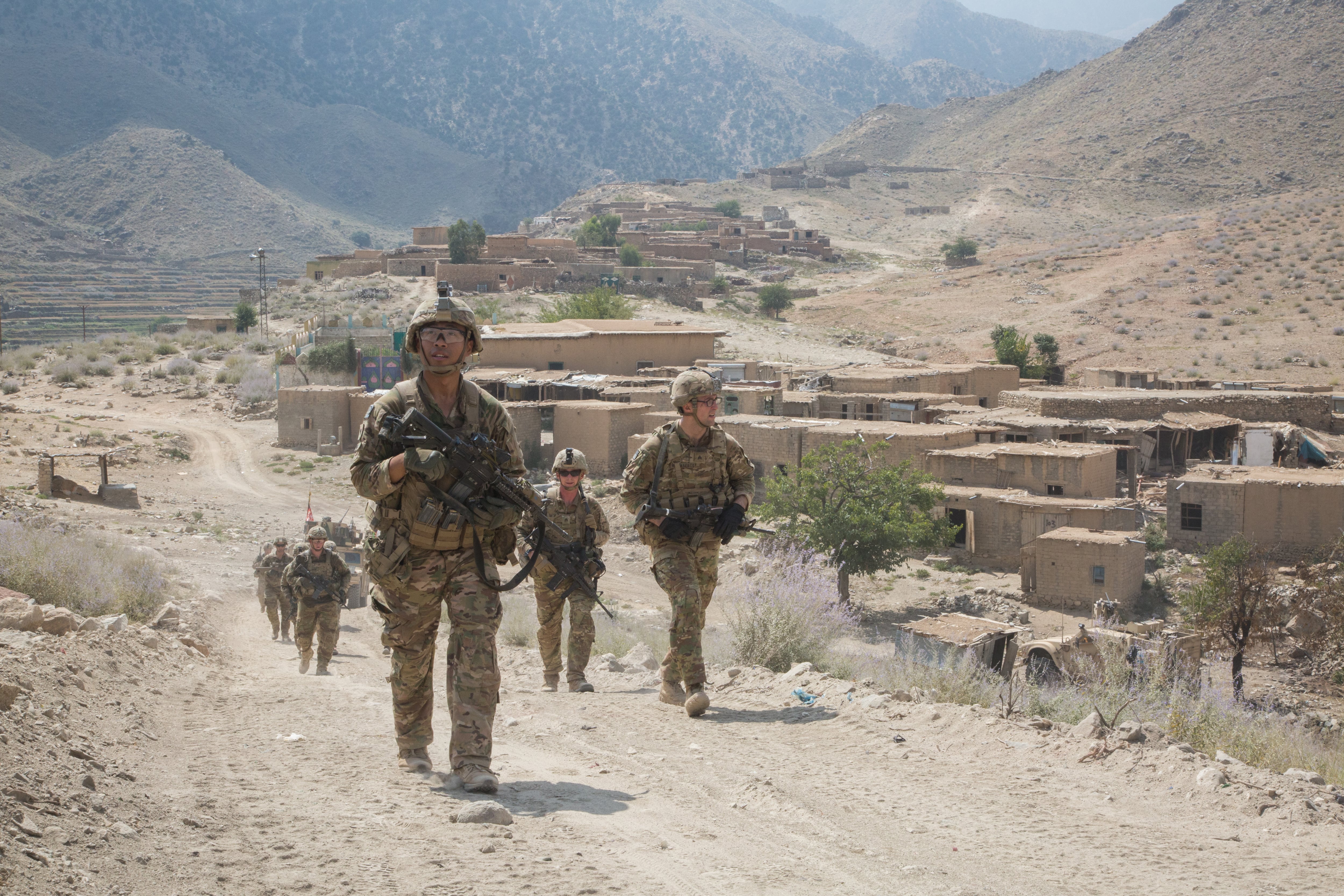For most of the past year soldiers with the 48th Infantry Brigade Combat Team out of the Georgia Army National Guard were spread around Afghanistan running a range of duties from training Afghan soldiers, to pulling basic guard duty to artillery fire missions to “Guardian Angel” security protection from insider attacks.
The 2,100 soldiers racked up 544 combat badges, eight Army Commendation Medals for valor and 14 Purple Hearts, said Col. Matthew Smith, brigade commander.
Most of the unit left for the deployment in early January, and about 1,600 were home by July, the remaining soldiers returned in September.
RELATED

In May, Spc. Miguel L. Holmes, 22, died from injuries suffered in a non-combat incident during the deployment. Holmes, of Hinesville, Georgia, was assigned to 1st Battalion, 118th Field Artillery Regiment, 48th IBCT.
The 48th IBCT was partnered with the 3rd Infantry Division leading up to the deployment and spent about two years working near-peer combat type of scenarios before transitioning predeployment to their training, advising and assisting focus for the Afghan deployment.
The mission differed a great deal from the unit’s three previous post-9/11 combat deployments, which saw them head to Iraq from 2005 to 2006 and then to Afghanistan 2009 to 2010 and send its headquarters element back to Afghanistan in 2014.
In the first mission the soldiers did mainly counterinsurgency work on the infantry level. And threats came in the form of ambushes, rocket attacks and roadside bombs.
While those remain in the mix, in recent years blue on green, or insider attacks, have become the top threat.
For that reason, the Guardian Angel program was put in place. It takes selected soldiers during pre-deployment training and has them focus on body language, posture and other things that an advisor might not catch.
Then protocol keeps a Guardian Angel with soldiers when they are advising partner forces.
Sgt. 1st Class Nicholas Nigro headed a team of 48th IBCT soldiers specifically trained for that role.
And when an attack did come in June in the Task Force Southeast region, they were able to kill the attacker. An Afghan commander died in the incident but no U.S. soldiers were harmed, Nigro said. He did not share any further details about the attack.
Smith told media that having about one third of the unit in civilian law enforcement jobs also helped. That’s because many of those soldiers brought policing skills and training in how to read people and intent to the deployment.
Though Smith said it was impossible to know whether simply the presence of the Guardian Angel soldiers prevented attacks, he did say that intelligence they were provided indicated that certain security efforts were effective. He declined to elaborate.
This time units as small as a squad to a platoon paired up with Army Special Forces teams and worked with the 2nd Security Forces Assistance Brigade, bringing more conventional firepower to the mission, from artillery to cavalry, logistics and engineers, Smith said.
Smith has spent much of his career with the 48th, having previously commanded Company H, 121st Infantry during their Iraq deployment, then as battalion commander for the 121st during their first Afghanistan deployment and later as the operations officer for the 48th IBCT on this tour.
Todd South has written about crime, courts, government and the military for multiple publications since 2004 and was named a 2014 Pulitzer finalist for a co-written project on witness intimidation. Todd is a Marine veteran of the Iraq War.




